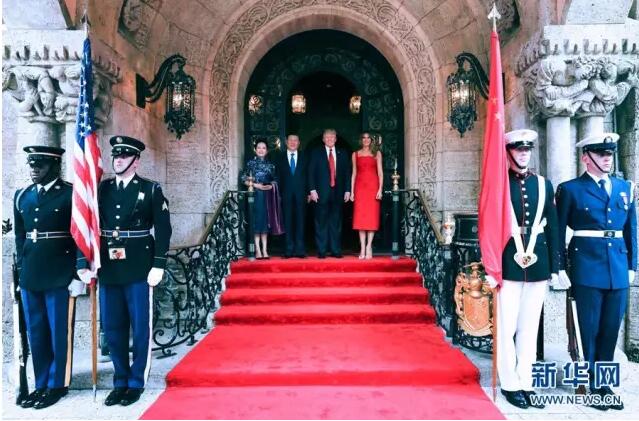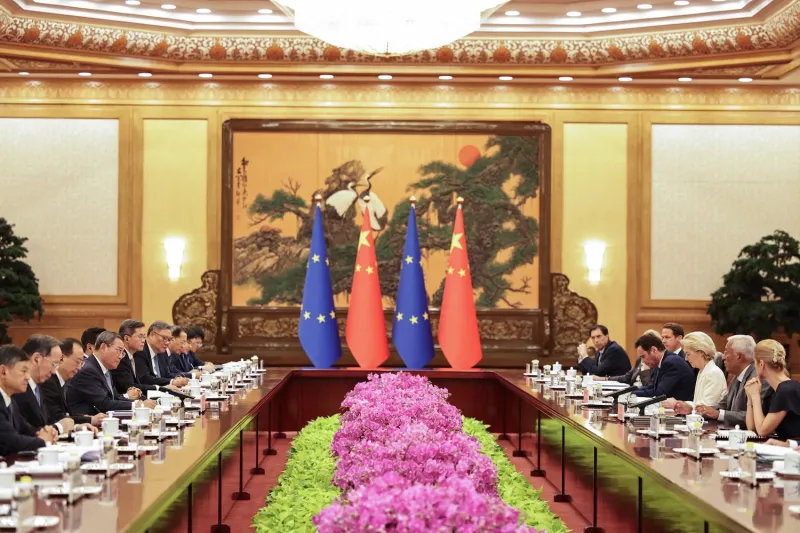Wang Huiyao: How a Xi-Trump summit could yield progress
April 05 , 2017Wang Huiyao: China should send signal on North Korea and support Trump’s $1tn infrastructure plan

The first meeting between Xi Jinping, China’s president, and Donald Trump, his US counterpart, has generated intense interest across the Pacific. Mr Trump’s invitation to Mr Xi came earlier than expected but the US president has already toned down his rhetoric against the country that he believes has caused huge trade deficits and job losses for the US.
The US president wrote in a tweet that Thursday’s meeting in Florida “will be a very difficult one”. While there are bumps in the road, Mr Xi can still score co-operation rather than confrontation with Mr Trump if he orients the meeting towards the 10 following areas of co-operation:
● Expanding channels of dialogue and communication between the two governments. An early invitation extended to Mr Trump’s economic team to visit China would help, as would more exchanges between academic and business leaders in the track-two settings.
● Separating the economic track from the strategic one. China’s outbound investment in the US surpassed the inbound foreign direct investment (FDI) from the US in 2015 and in 2016. Highlighting the effects of Chinese investments on manufacturing jobs creation — estimated to be more than 100,000 jobs created in recent years — aligns well with Mr Trump’s promises to his Rust Belt supporters.
● Improving conditions for American companies operating in China. US multinational corporations in China have traditionally played the role of “stabiliser” in US-China relations, with their pro-China voices on Capitol Hill. It is time for Beijing to tap into the support of its natural allies by helping them succeed in China.
● Enlisting US support for regional economic integration in Asia-Pacific. Mr Trump withdrew the US from the Trans-Pacific Partnerships (TPP) agreement, disappointing the desire of the world’s most economically dynamic region for multilateral trade architecture. Although Mr Trump is unlikely to switch from his signature anti-free trade stance, he can still be informed of the potential benefits that the Free Trade Area of the Asia Pacific (FTAAP) could deliver.
● Highlighting the positive effects of Sino-American collaboration on tourism and education on the US economy. More than a third of international students in American universities are from China. Close to 5m Chinese tourists — who tend to spend freely — visit US cities each year. But there is a concern that Mr Trump’s trade war rhetoric is going to damp Chinese tourists’ enthusiasm for the US.
● Pledging support for Mr Trump’s $1tn infrastructure plan. Fiscal measures alone are unlikely to mobilise the tremendous capital needed to rebuild the US’s dilapidated roads and bridges. Mr Trump will have to count on public-private partnership deals and foreign investors. Boasting a clear competitive edge, China is poised to participate in American infrastructure with its capital, technology and experience. Beijing can even invite the US to join the Asian Infrastructure Investment Bank (AIIB).
● Strengthening ties with the US’s state and local governments. This can be done through exchange platforms such as the China-US Governors Forum. The Chinese business community is encouraged to embed their US operations in the hosting localities by building relations with non-profits such as trade unions, industry associations, charity organisations and so on.
● Mitigating geopolitical tensions in east Asia. Demonstrating resolve to work with the US in curtailing North Korea’s nuclear ambitions not only sends a signal to Pyongyang, but also helps ease the security anxiety of South Korea and Japan, two US allies that have been fearful of Mr Trump’s reduced commitment to Asian alliances and have consequently resorted to a further military build-up.
● Stepping up co-operation with the US on global governance. For many years the White House has accused China of shirking international responsibilities. Now, Mr Xi has formally committed China to playing an increasing role in global governance. Although Mr Trump has said the US will pull out of the Paris climate change accord, America is unlikely to ease off tackling thorny international issues with other major powers.
● Promoting track-two interactions between societal actors in both countries. Think- tanks, in particular, are in a unique position to foster positive understandings on the political and socio-economic situations of the two sides. The “revolving door” practice helps integrate diverse perspectives from the academic, commercial and policymaking communities. Chinese think-tanks, especially those without government ties, are expected to step up to provide better policy consulting services as well as aid in the country’s diplomacy.
With the Trump-Xi meeting only a day away, all eyes are on the irritants of the bilateral relations. However, while the road to Mar-a-Lago appears bumpy, there are still grounds for optimism. The buzz over “Chimerica” may have dissipated but the relationships between the world’s two largest economies are simply too multi-faceted, interdependent, and complex for Mr Trump to undo.
Topical News See more






